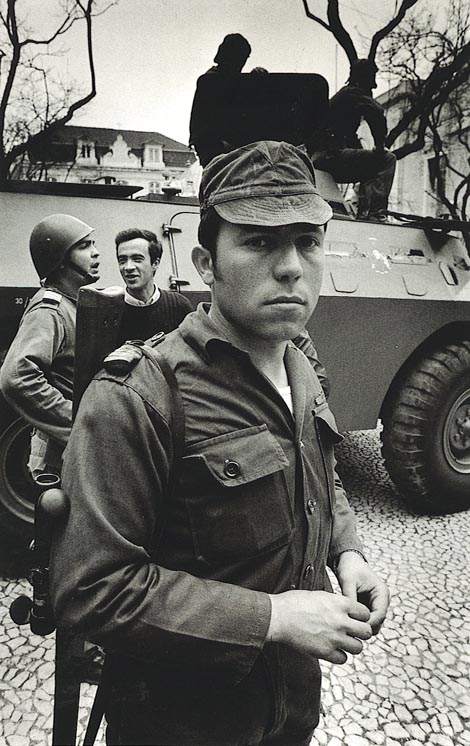 The arrival of a chaimite in the city of Loulé, next Saturday, April 26, at 10:30 am, will mark the beginning of the homage that the Loulé City Council and the Municipal Committee of 40 years of April 25 will pay to Salgueiro Maia, one of the most outstanding names in the Carnation Revolution.
The arrival of a chaimite in the city of Loulé, next Saturday, April 26, at 10:30 am, will mark the beginning of the homage that the Loulé City Council and the Municipal Committee of 40 years of April 25 will pay to Salgueiro Maia, one of the most outstanding names in the Carnation Revolution.
Aiming to create the atmosphere that lived in the streets of Lisbon 40 years ago, this chaimite will make a tour through the main arteries of the city – entrance by Av. Andrade Sousa, Largo de São Francisco, Rua da Barbacã, Praça da República, Avenida José da Costa Mealha, Rua José Afonso and Largo Salgueiro Maia where homage will be paid to the great Captain of Abril.
A panel with the image of this emblematic figure of the Revolution and the flags of all the parishes of the Municipality of Loulé and of the Commemorations Council of the 40th anniversary of the 25th of April will be exhibited at the site. A symbolic moment that intends to exalt the courage and tenacity of Salgueiro Maia.
Fernando José Salgueiro Maia was born in 1944, in Castelo de Vide. After attending the Military Academy and the Practical Cavalry School, he served as lieutenant-command in Mozambique during the Colonial War. In 1973, clandestine meetings of the Armed Forces Movement began and Salgueiro Maia, as Cavalry Delegate, was part of the Movement's Coordinating Committee. After the 16th of March 1974 and the Uprising of Caldas, already with the rank of Captain, in the dawn of the 25th of April 1974, he directed the revolutionary troops from Santarém to Lisbon, becoming one of the key figures in the coup. He took over the ministries of Terreiro do Paço and the headquarters of the Guarda Nacional Republicana, in Carmo, where the head of government, Marcelo Caetano, was taking refuge, and he surrendered, escorting him to the plane that would transport him to exile in Brazil. Thus came the fall of the Estado Novo.
The military uprising unleashed by the Armed Forces Movement overthrew the regime practically without the use of force and without causing casualties. The only two moments of tension were carried out by Salgueiro Maia himself: the first was the meeting with an armored detachment, until then obedient to the Government, resolved when these troops took up positions alongside the rebels; the other occurred when the captain ordered the opening of fire on the outer wall of the GNR barracks.
After the 25th of April, Salgueiro Maia modestly resumed the course of his military career, refusing all the honors that the democratic regime wanted to give him. He died in 1992 at the Hospital Militar de Belém, but his memory is still very present in the country.


















Comments